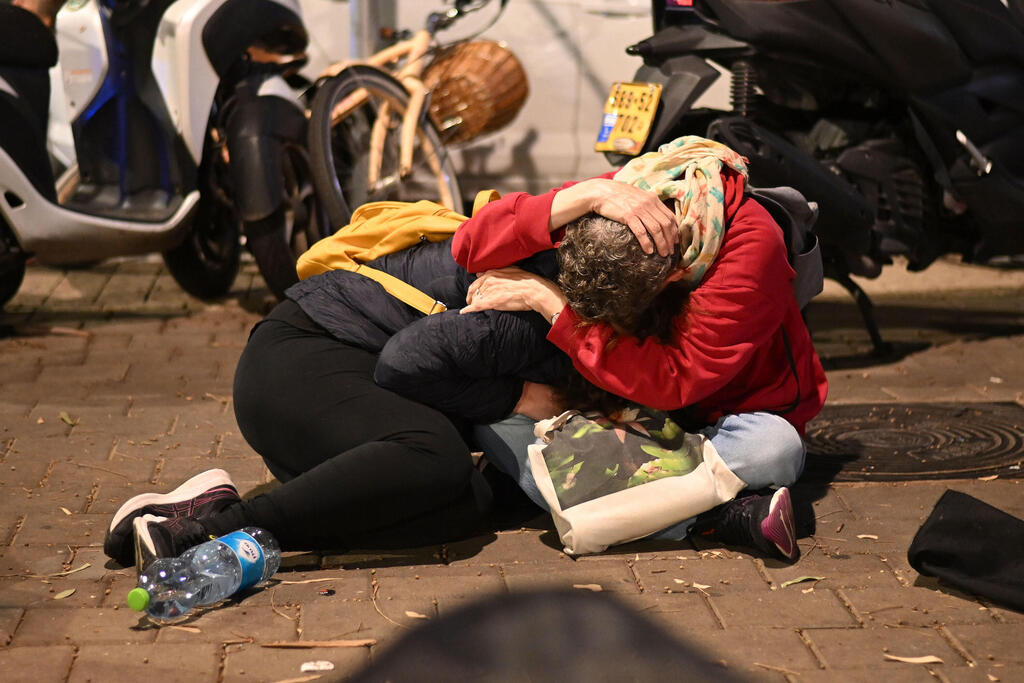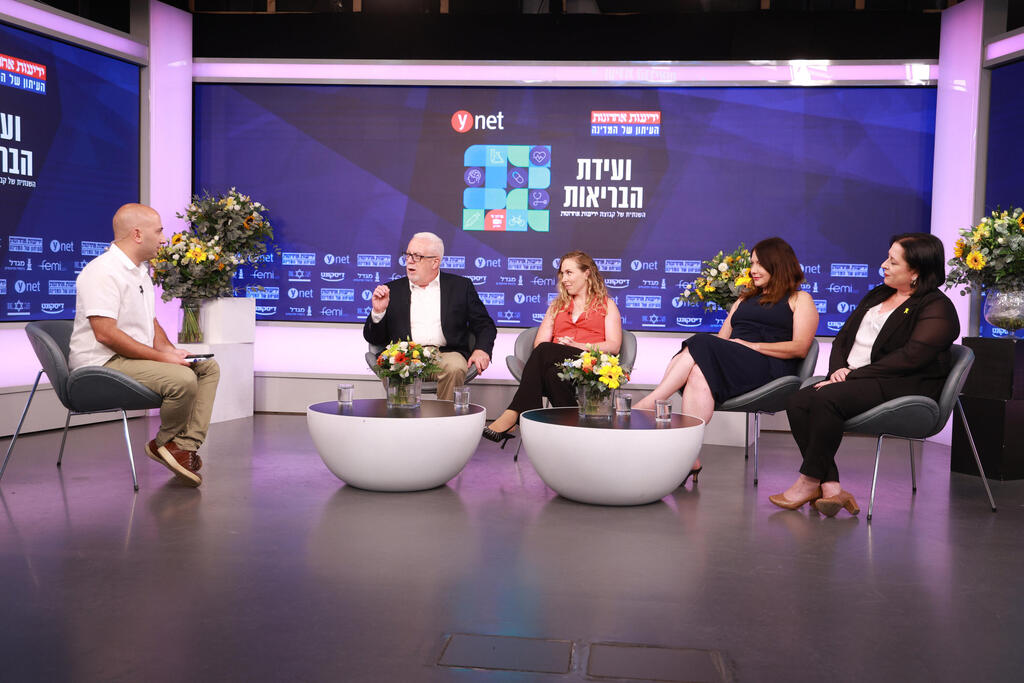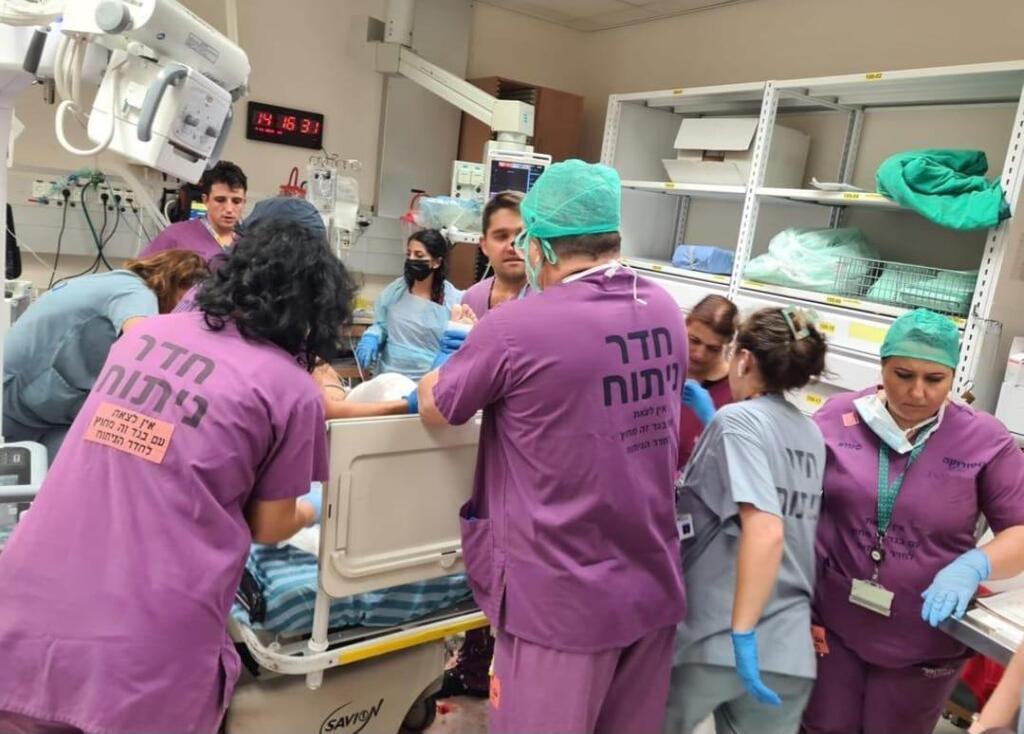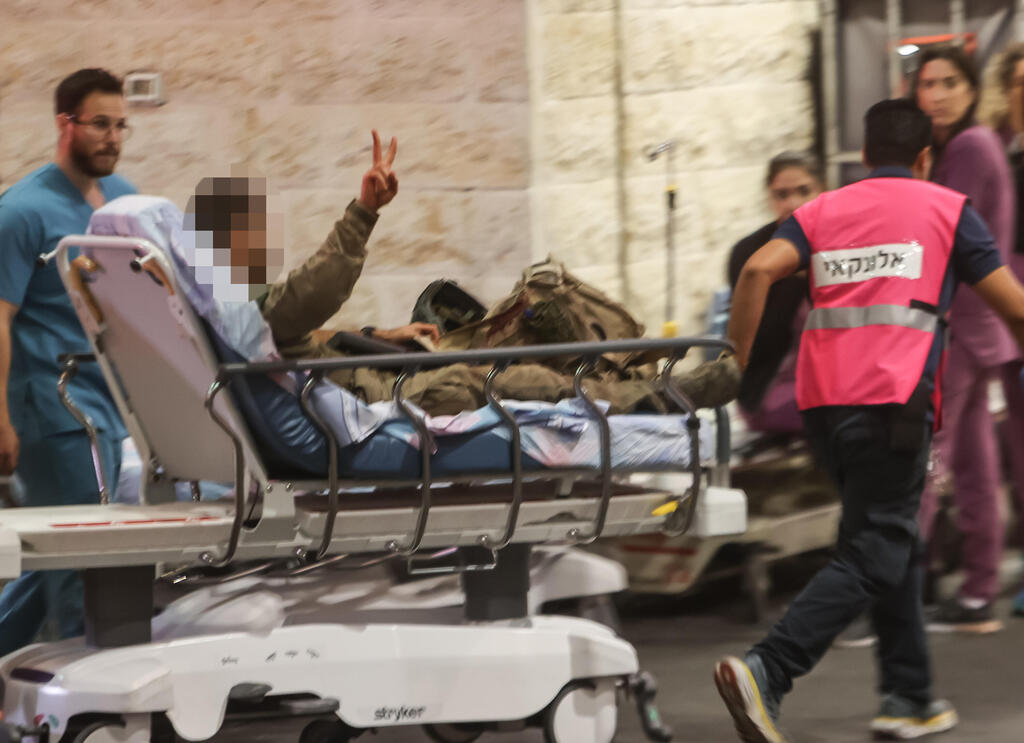Getting your Trinity Audio player ready...
The security and political landscape heavily impacts our health, beyond just causing stress. Physical health can deteriorate: diabetes management can become unbalanced, skin conditions like psoriasis can flare up, intestinal issues and chronic pain conditions resurface, and mental health challenges like post-trauma rise. At the Ynet and Yedioth Ahronoth health conference on Monday, experts discussed insights gained since October 7 and warned of increasing addictions among teenagers and rising use of addictive opioids.
"This is a massive trauma with ongoing stress, and stress is the enemy of chronic diseases, especially diabetes. Under stress, all hormones rise. Physical activity changes. Distraction sets in. People are now placing health lower on their priority list. They think about security, the economy, so all these things together – exercise, food, emotional eating, distraction and especially the ongoing stress – lead those with balanced diabetes to lose that balance," explained Professor Naim Shehadeh, director of the Institute of Diabetes, Endocrinology and Metabolism at Rambam Health Care Campus.
"People who were borderline regarding sugar levels are turning diabetic. Balance is disrupted, and we are genuinely seeing its effects. People haven’t undergone tests for a long time, and this continues. Medical support in the north has also decreased. Outpatient consultations in the first months are almost non-existent, so there’s a need to provide answers and solutions for people and family doctors who need advice and help with this issue," he said.
Dr. Tili Fisher Yosef, general practitioner and health-tech and digital health fellowship alumna, added: "We already know from past periods that some diseases accompany stress and even get worse. All skin diseases like psoriasis, eczema, intestinal diseases ranging from irritable bowel syndrome, which is benign and not dangerous, to inflammatory bowel diseases like Crohn's and colitis, we have many more cases of severe headaches, exacerbations and various chronic pain conditions like fibromyalgia, which cannot be separated from the psychological and emotional element. From a gender perspective, I must say that, as in any other stressful period, we detect many more incidents of violence, unfortunately. Domestic violence. We see partners returning from the battlefield not exactly as they were, and on the other side, there is mental illness," according to Fisher Yosef.
"People don’t come saying they have post-trauma. Instead, they describe a wide range of symptoms that are primarily physical when they come to me. A patient might come and say lately, I haven’t been sleeping well, I put my head on the pillow, fall asleep, have many awakenings, I sleep tensely, and wake up early in the morning," she explained
Dr. Tal Bergman, medical director at Shaar Menashe mental health center, noted that these phenomena aren't surprising. "We are in a crisis situation, and you expect psychological reactions. I do think I see more conditions that I haven’t seen before, so we know that mental disorders are highly related to triggers and deeply connected to significant events in our lives as human beings," she said.
"I think this is the first time I see how a national situation and an environmental change, which is what is happening now, deeply penetrates and manages to impact an individual's mental health. Meaning, when someone comes and says I am now depressed because all these things are happening and, until now, in all the crises that have been, and I’ve been through quite a few crises in this country, I didn’t react like this," she added.
"It’s important to note that post-trauma is a frequent issue. Almost any mental disorder can intensify, including organic physiological disorders with a stress component, but there are many trauma responses. Depression, anxiety, pains that have no place, that don’t find an organic source, and we’re seeing all these things now," Bergman said.
She adds that these phenomena extend beyond risk groups. "Many people have been exposed to the tragic events, residents of the area, residents of the south, residents of the north. Today, I think the risk groups have become not defined and small but very broad populations."
Tal Hayun, head nurse at Soroka Medical Center in Be'er Sheva, your perspective is particularly interesting because you’re on the ground in the operating rooms at Soroka. This is another aspect of October 7. What have you observed from the day of the massacre until today in terms of hospital operations?
"The hospital was on the front line even before that terrible day. We continue to care for a very large population. The Negev population is large, and as a central hospital we provide services and responses to all that is required. The processes occurring since then in the hospital involve everyone being on very high alert for all situations around us. People have been undergoing significant processes since that day, and it’s very natural."
How do you maintain such a high level of alertness over time?
"I think there’s something about this unity of the teams among us across different sectors. We know that if we’re not there for them, it won’t be good. And if we are there for them, we can save lives. When you have such a heavy task on your shoulders and you know there’s an entire team around you that needs this support and knows how to save lives – that’s their mission – then that’s our mission."
Hospital serves as a community pillar
Shehadeh highlights how the health care system has mobilized since October 7. "Hospitals have done their utmost. Family doctors and health clinics stepped up, though we had no prior experience with such a situation, leading us to rebuild plans and map resources across regions, villages, communities and cities. A comprehensive mapping took place and, at least in the north, academia also engaged with the community. Typically, academies and universities don’t usually intervene in community matters.
"Everyone rolled up their sleeves and began working with a comprehensive program of phone consultations to support evacuees and patients lacking current consultations. Digital and hard copy brochures were distributed on dealing with sleep issues, managing nutrition, and relieving stress and anxiety. We tried to support the community as much as possible, including medication advice, with amazing backing from the health clinics."
Fisher Yosef pointed out that "in some areas, the clinics responded very quickly to the situation because the pandemic had also prepared us for remote medicine, or medicine amid scarcity and uncertainty. However, there's still a severe shortage in dealing with dual morbidity and addictions. I want to emphasize the youth."
"We’re talking about dual morbidity, which is essentially the combination of mental illness and addiction to medications. This could be prescription drugs, pain medications or opioids. We've surpassed the U.S. in terms of opioid consumption per capita because it's very easy to prescribe. Even I, as a general practitioner, can prescribe, and there’s a large market and demand. On Telegram, it’s very easy to purchase. A child can easily obtain it, take a patch, and sniff it," according to Fisher Yosef.
"We know one of the leading factors for addiction is the lack of connection, the absence of community. Here, I feel we will need to rethink how we make rehabilitation accessible from youth to adulthood," she said.
"If we look, for example, at 12th graders, these kids already experienced lockdown and isolation during the pandemic, falling through the cracks without any support framework while their parents struggled to maintain livelihoods and were not present at home. They lacked the educational framework to support them. Later, this age group also lost the most from the school system in the past year. The third circle includes evacuees who even lost their community. We know one of the leading factors for addiction is the lack of connection, the absence of community. Here, I feel we will need to rethink how we make rehabilitation accessible from youth to adulthood."
Bergman discussed health care system disparities. "I must say, disparities in the health care system existed before, and these gaps exist, they weren’t created on October 7 or during the Gaza war, but everything is greatly amplified in these situations, and here I feel a real responsibility," he said.
"As there are such gaps in central Israel, there are far more gaps, at least in our area, at Barzilai Medical Center. When you look at the community, people are quite dependent on the ambulatory care from our hospital because they have no alternatives, and this places the hospital as a very significant cultural community anchor. But this also translates into burdens and queues. Our planning of health systems should not only address crises. But we must consider expanding health systems' capabilities in both physical and mental health. It's a matter of priorities," according to Bergman.
Shehadeh referred to the prolonged period of conflict. "We are now better prepared to cope. Everything surprised us, but over this long year, we learned how to extend a hand and help patients and improve the situation as much as possible, so hopefully, we won't need it, but if something happens, we are more prepared this time to extend a hand and help our patients," he said.
Fisher Yosef: "I apologize for sounding grim, but in Israel, unlike other countries, many of our doctors are active reservists until a very late age. This means that, for example, in my area, we practice several health funds together. There will be a single unified clinic because we are already considering the scenario where this doctor will be in reserves and that doctor will be in reserves, effectively reducing the entire staff to about a third."
Bergman agreed with this assessment. "Caregivers know how to help and support each other. And this is something we will need to do. Regarding the word apocalypse, I have to say this. Systems will always prepare for an apocalyptic scenario because that is their purpose, that’s how you prepare. You prepare yourself while thinking about the worst-case scenario, and this is how you truly prepare for an emergency, but the potential does not necessarily materialize, and we all know this from life. I am no prophet. No one here is. We do not know what the severity of the injury will be, how they will adapt to treatment, how they will respond to treatment, how they will be supported, so we do not yet know how to pinpoint exactly what will truly be required."
Hayun concludes from her perspective in the operating rooms: "We prepared for extreme scenarios. But not for an extreme scenario like what happened on October 7, and we do not know what additional extreme scenario may come our way, but the very practice and readiness and the knowledge place us in a different position than we were. Ultimately, it doesn’t matter how much technology there is, how many budgets, and how many infrastructures of various kinds. It is based on people and the ability and the desire and this unity that I hope will continue for much longer."






